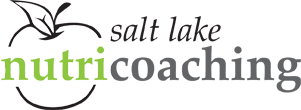Everyone knows that exercise is one of the surest ways to get fit and feel great. But did you know you can make exercise both easier and more effective if you eat correctly before and after? It’s true! “Eating for exercise” is a concept that some of the world’s top athletes have started embracing over the last decade. So, before you hit the treadmill or pump iron, learn and follow these simple tips on how to get the most out of your exercise regimen through better nutrition.
QUICK NOTE BEFORE WE BEGIN: You might think that if you aren’t an athlete, you don’t need to understand how to eat for exercise. However, if you have a goal of losing weight, building muscle, hitting personal records, feeling more energized, decreasing inflammation, or just becoming healthier overall, then you must learn the basics of fueling for a workout.
Pre-Exercise
As a dietitian, I feel like I have heard every excuse in the book for why people don’t eat before they exercise. Maybe you relate to some of these!
- You don’t feel hungry when you wake up in the morning
- Eating before exercise makes you feel bloated and weighed down
- You don’t have time to eat before exercise
- You are trying to cut calories to lose weight
- You go straight from work or school to the gym
I strongly encourage everyone to eat something before they exercise, but the exact timing will be different person-to-person. Some people do well with a larger meal 2-4 hours before exercising, and others need a high carbohydrate snack in the hour before. Many people need both! Either way, have you spotted what both approaches have in common? Yep, you guessed it: Carbohydrates!
Carbohydrates are your body’s energy source. They are going to power your workout and make you feel energized. Carbohydrates by themselves are quickly digested and absorbed into the blood. Eating too much protein and fat can actually slow down digestion and make you feel weighed down during exercise. This is why I recommend that the closer you get to exercise, the more you focus on carbohydrates.
Carbohydrate foods also tend to feel a little easier on the stomach if you are doing an early morning workout and don’t tend to feel hungry. Your body will adjust as it gets used to eating before exercise.
If you feel like you are short on time or always on the go and don’t have time to eat, there are plenty of carbohydrate options that can be kept in your car, office, or gym bag. Here are some of my favorites:
- Dried fruit
- Fruit bars and fruit leathers
- Crackers
- Pretzels
- Wheat thins
- Applesauce pouches
- Sports drinks
During Exercise
If you are working out for less than 90 minutes and you feel energized during your workout, eating during your exercise is probably not necessary. But your energy reserves (in the form of carbohydrates) will only last you so long, so you may need a little pick-me-up during longer bouts of exercise.
You might benefit from fueling during exercise if:
- You have trouble eating enough before exercise (especially if you exercise early in the morning!)
- You are doing a more intense workout
- You are exercising in extreme conditions (Like going for a run when it is super hot!)
- You struggle with energy levels during your workouts
- You feel lightheaded or sick during your workouts

One of the benefits of working with a dietitian is that we can figure out a fueling plan that is best for you and your situation!
If you do need a little extra fuel during exercise, stick to simple sugars. They will be the easiest and quickest thing for your body to digest. Sports drinks like Powerade and Gatorade are my top choice because liquids tend to sit well with the stomach during intense physical activity. You can also go for things like applesauce, fruit, dried fruit, fruit juice, pretzels, crackers, fruit snacks, and sports gels. This is why you often see professional athletes, like tennis players, snack on a banana during breaks.
Post-Exercise
I recommend eating a balanced meal or snack (or both) within an hour of finishing exercise. Choose a good source of carbohydrates, protein, and healthy fats, as they each play an important role in recovery.
- Carbohydrates help to refuel your muscles. During exercise, you are burning through your muscles’ store of sugar, or energy. Eating carbs after exercise enables your body to replenish those stores for the next time you need to exert yourself.
- Protein helps your body to rebuild itself. When you exercise, especially when, say, lifting weights, you are actually creating “microtears” in your muscle. The process of repairing these tears is how you actually build muscle. Protein is what your body needs to do this more quickly and efficiently.
- Healthy fats are important because without them, your body can’t absorb certain fat-soluble vitamins, like A, D, E, and K. (Note that you should not eat food with a lot of fat before exercise, because it takes longer to digest and inhibits blood flow to muscles. But eating healthy-fat foods after exercise is very beneficial.)
I commonly hear that people avoid eating after exercise because they don’t want to “undo” all the work they just did. Think about it this way- if you are putting strain on your body and pushing it to its limits but aren’t giving it any fuel to rebuild itself, get stronger, and actually change, you aren’t doing yourself any favors!
Eating for exercise might include reevaluating your relationship with food and your body. Remember, nutrition and exercise are not a punishment, but rather, an amazing form of self-care! As you fuel properly for exercise, you might be surprised at how well your body responds and how much easier it is to reach your goals!
If you are starting a new exercise regimen, we can help you make progress toward your goals! We offer special nutrition- and meal-planning packages for people looking to manage their weight or boost their energy levels. We also frequently help both professional and student athletes who are looking to get their body in peak competitive shape! Feel free to contact us with any questions or book an appointment today.

